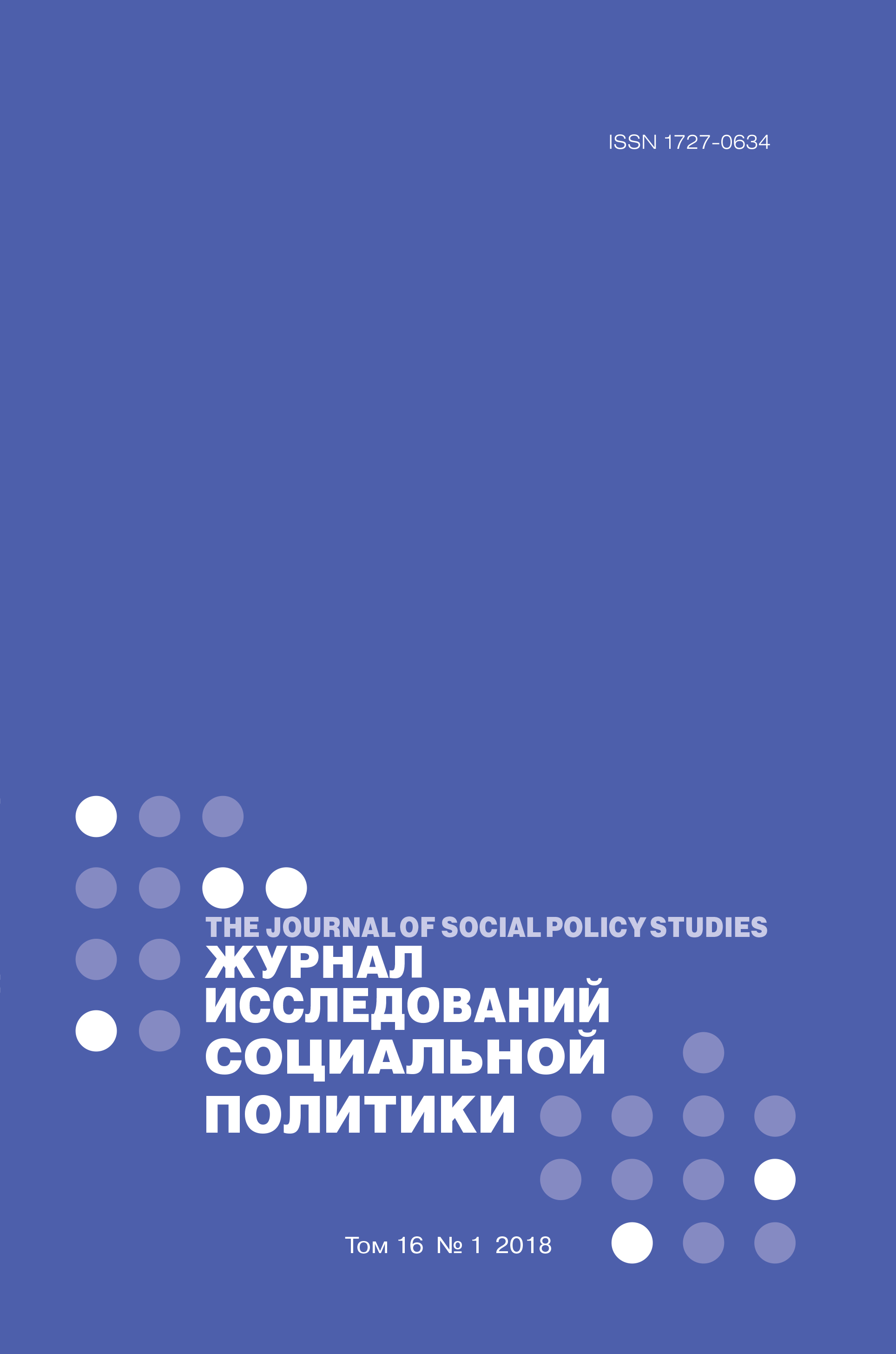The Socio-Political and Medical Aspects of Alcohol Abuse as a Factor of Risk Causing Social Distress among Older Age Groups
Abstract
Elena Golubeva – PhD, Professor of the Department of Social Work and Social Security, Higher School of Social Sciences, Humanities and International Communication, Northern (Arctic) Federal University named after M. V. Lomonosov, Arkhangelsk, Russian Federation. Email: e.golubeva@narfu.ru
Andrey Soloviev – MD, PhD, Professor of Psychiatry, Chief, Department of Psychiatry and Clinical Psychology, Northern State Medical University, Arkhangelsk, Russian Federation. Email: ASoloviev1@yandex.ru
The article analyses the role of alcohol consumption as a risk factor increasing social disadvantage among older age groups. Firstly, the problem of alcohol abuse among the elderly is considered with reference to the major socio-political international and Russian documents. These documents outline the key elements of state policies and the instruments in use, which aim to keep a rapidly growing elderly population healthy, thus reducing the burden on the health system and social security and employment. Particular attention is paid here to the problem of alcoholism among the elderly. Based on the results of empirical studies of the lifestyles of 713 of people aged 60 to 89 in the Arkhangelsk region, this paper offers an evaluation of the impact and consequences of alcoholism, which can be viewed as a destabilizing mechanism in social life settings. The main difficulties in that respondents highlighted that, directly or indirectly, led to alcohol use were the limitation of activities caused by the reduction or disability, loneliness, inadequate social skills, social isolation, lack of physical activity. Thus, consumption of alcohol can be understood as a ‘withdrawal’ from one’s accumulated problems. Loneliness as a manifestation of social exclusion is one of the most dangerous stimulants towards alcohol use among the elderly, which can be seen as a form of ‘doping’. The frequency with which alcoholic beverages are consumed depends on gender and age characteristics, as well as education level. Another important factor to be considered is the consequences of the alcohol consumption of older persons as an important risk factor for social disadvantage at the macro-, micro-social and personal levels. The results obtained here update regional studies on the life quality of the elderly population in the regions, revealing a high risk of alcoholic consumption, as well as the development of social policies due to the demographic development and the increase in the availability of medical care for the elderly.















